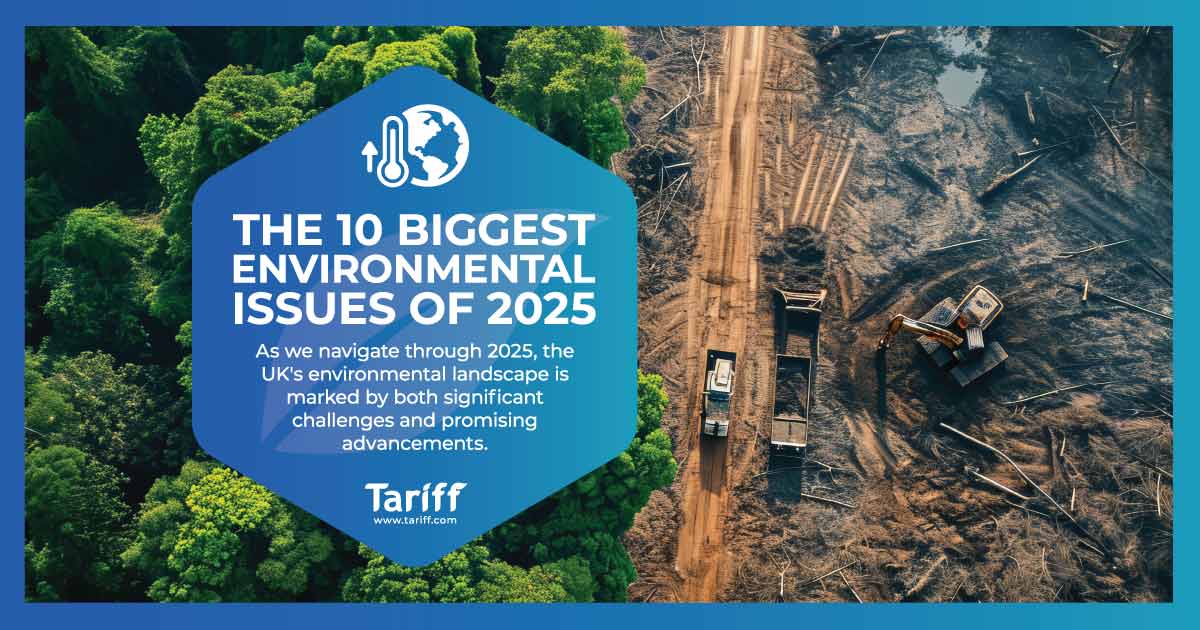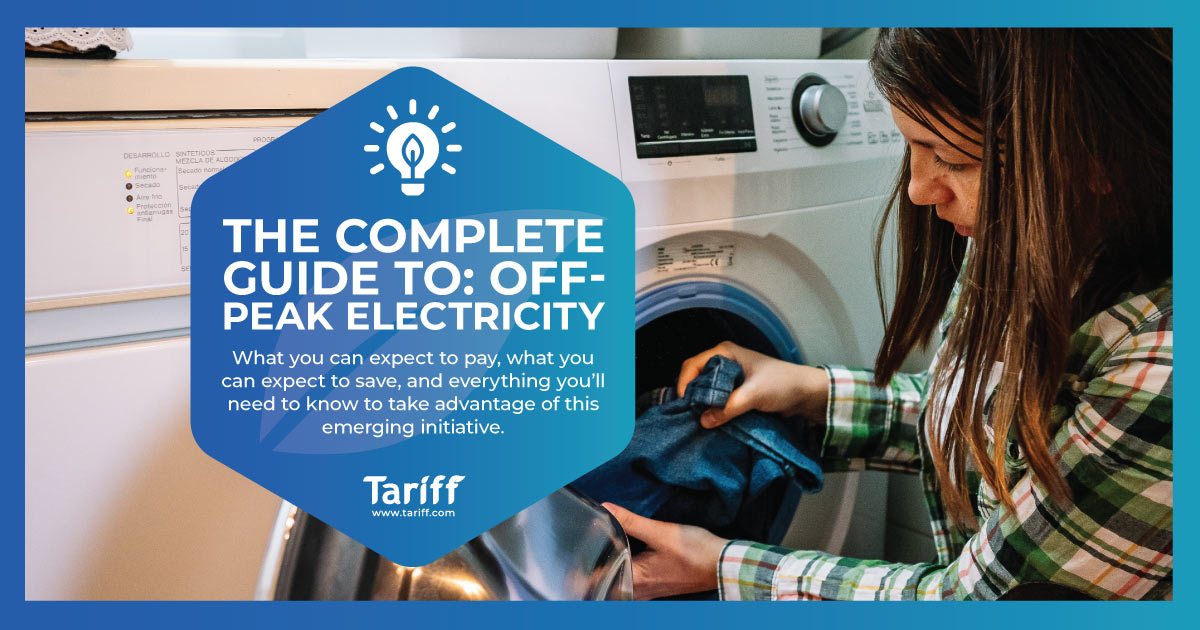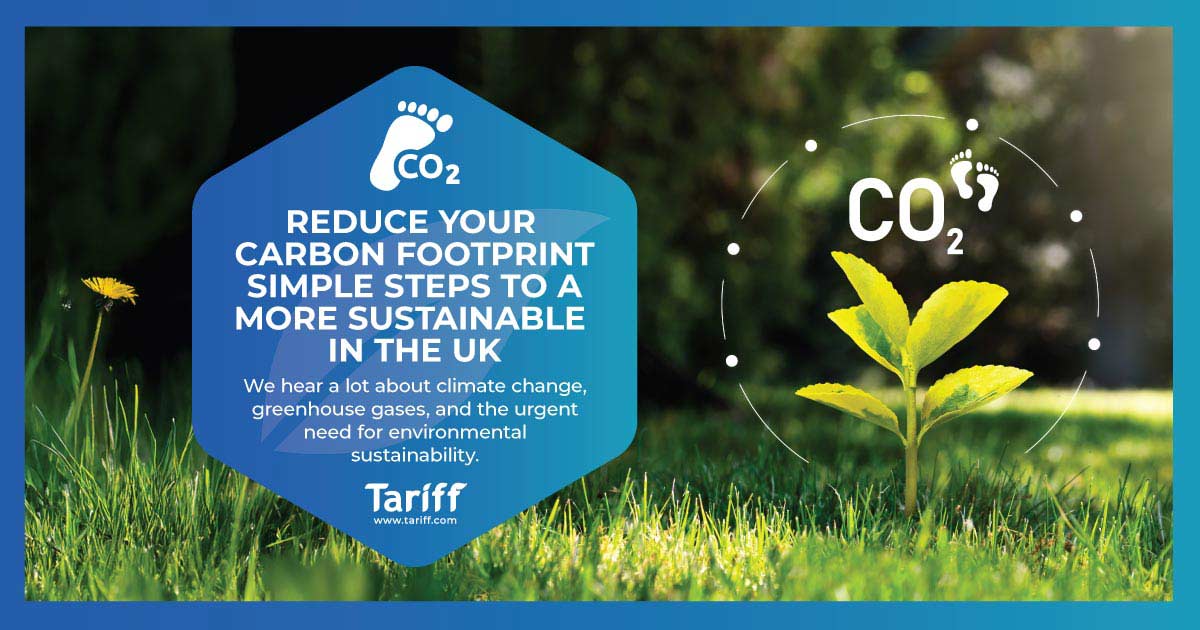How Carbon Credits Are The Key To ESG Goals
We all do our part in creating a more sustainable future. There is mounting evidence to support that our planet is changing, and it falls to all of us to make changes – whether big or small – that can truly make a difference, and secure a future for the next generation. While that’s true for everyone, a bigger share of that falls to businesses.
As we’ve discussed time and time again here at Tariff, the way businesses consume energy is set to come under scrutiny, and while you’ll no doubt do all you can to minimise your carbon footprint, it’s nearly impossible to be emission-free. That’s where carbon credits come to the fore.
Our latest guide will delve into the importance of carbon credits for UK businesses, how they make a huge difference across the globe, and how they can ultimately help you align with your customers’ values. We’ll also look at how you can harness those for your business, and how Tariff are on hand to help.
What Are Carbon Credits?
Carbon credits are a way of compensating for any greenhouse gas emissions a business makes.
While businesses are no doubt doing all they can to reduce their carbon emissions, it’s the unfortunate truth that some fossil fuel usage is unavoidable. That might be in the vehicles you use, the energy you use to power your tech, or even in the heating for your office – the effects are wider-reaching than we ever realise.
That residual energy we use needs to be offset if we want to achieve net-zero or “carbon neutral” status. That’s the goal for businesses across the UK, and for good reason – studies (like this one from McKinsey) have long since proven that customers are more likely to spend money at a business that places their environmental commitments front and centre.
They were created as far back as 2005 in the EU, with the advent of the EU Emissions Trading System (EU ETS), but numerous systems across the world offer similar services, including the UK’s own ETS and China’s Emissions Trading Scheme.
A carbon credit acts as a concrete verification that your business has invested in initiatives that seek to better the state of the planet, and lend themselves to a wider gamete of environmental initiatives your business is undertaking.
How Do Carbon Credits Work?
Carbon credits are purchased from reputable sources by businesses. They’re generated through environmental initiatives.
Carbon credits are the ideal way to achieve that net-zero status we mentioned earlier. They’re a certificate that says your company has invested in or contributed towards, an environmental initiative. This is usually schemes that involve:
- Reforestation (tree planting)
- Peatland restoration
- Wildflower meadows & natural farming initiatives
- Renewable energy projects
- Waste-to-energy projects
The process for generating carbon credits is relatively simple, requiring a company or organisation to undertake environmental work, before offering those carbon credits at a cost. A great example of this is the RSPB’s work in Sierra Leone, where they support the Gola Rainforest Project – protecting a huge, 70,000-hectare national park.
The purchasing process is less straightforward. There are two schemes that you can be part of – a voluntary scheme and a compulsory scheme. We’ll first look at a compulsory scheme, which is determined by the government.
We’ll use the UK’s ETS model as our example, as this is the process businesses across the country will be undertaking. You’ll find the full write-up from the UK Government here, but we’ve highlighted a few key pointers to note:
- The ETS system applies to certain set industries, such as the aviation sector
- The ETS system works on a “cap and trade” principle
- The cap establishes the total amount of greenhouse gases (GHGs) that can be emitted by sectors covered by the scheme.
- The cap decreases over time, to meet the stringent net-zero deadline of 2050
- Under the cap, participants can purchase emission allowances (carbon credits) and trade these with other participants
A voluntary scheme, such as the one we mentioned earlier from the RSPB or the Woodland Carbon Code, is open to any business that has carbon emissions that they cannot eliminate. These operate on a first-come-first-served basis and aren’t necessarily always available (especially during winter months, or seasons of heavy rainfall).
How Much Are Carbon Credits In The UK?
A carbon credit from the UK’s ETS model costs £64.90 per tonne of carbon dioxide. A carbon credit from a voluntary scheme costs (on average) £32.57 per tonne of carbon dioxide.
While the price of voluntary carbon credits can (and does) fluctuate, the UK’s market for carbon credits has been in a welcome decline. Analysis from Statista shows the extent of that, with late August of 2022 peaking at £97.30 – more than 66.5% higher than it currently is.
There’s been several factors in that, with Brexit chief among them. That was the catalyst behind the UK beginning its own ETS, and while prices between the two don’t differ by vast amounts, it’s offered the UK a chance to regulate its own market.
Couple that with a milder winter and reduced power demand, as identified by the above Statista report, and it’s easy to see why the prices have reduced. The compulsory carbon credits scheme doesn’t share the same price reduction, however.
As we touched on earlier, the “cap and trade” system only allows for a set amount of carbon credits to be distributed. This not only drives companies to be more focused on their energy goals, but drives scarcity too. It creates a recipe for more expensive carbon credits, and the UK government prices these (as of 1st January 2025) at £64.90 per tonne of carbon dioxide.
It’s important to note at this point that all prices are for a tonne of carbon dioxide – this is the standard measurement for any carbon credit, and it’s usually not possible to purchase a smaller amount of offset carbon.
How Do Carbon Credits Factor Into My ESG Goals?
So often the focus of modern business, our Environmental, Social, and Governance (ESG) goals are integral to illuminating the path forward. While environmental plans and managing your electricity bill are undoubtedly considerations, there’s also the matter of ensuring that you’re involved with your community.
A carbon credit ticks both boxes. Not only are you investing in tomorrow by promoting those much-needed environmental initiatives, but you’re also investing in your local community with better parklands, better surroundings and an ultimately better future.
Take, for example, the carbon credits we offer here at Tariff. We partner with dedicated landowners to offer them an opportunity to turn their unused land into a profitable, eco-friendly project. These are scattered across the country, and each one is looking to make environmentally-conscious use of their land.
That’s coupled with longstanding partnerships between Tariff and multiple regional and national organisations. The major one, and arguably the most impactful for your business, is our work with the National Forest Company, who offer projects that span reforestation, woodland creation and habitat management.
It’s all overseen to ensure that we provide maximum benefits to the wider community – another box ticked off when it comes to your company’s ESG ambitions. We don’t take projects of this nature lightly, and we’re committed to ensuring that there’s a clearly defined path forward for all our projects.
Of course, while we can wax lyrical about the way we promote a cleaner, greener future with our carbon-offsetting processes, we know that’s not the only ESG benefit you’re looking to harness. As part of any carbon credit scheme, you’ll be able to enjoy:
- Cheaper energy bills
- Greater involvement in local and national initiatives
- A closer connection with what matters to your customers
- A brighter, more prosperous future for your company
With all of those in mind, there’s never been a better time to get on board with Tariff, one of the UK’s trailblazers in carbon offsetting. Our comprehensive process begins with understanding the energy your business uses, before making sustainable and manageable changes to how you consume your power.
That’s all capped off by carefully chosen carbon credits from trusted providers. We understand just how integral moves like these are to businesses and, arguably more importantly, the environment, and we’ve honed an approach to energy efficiency and carbon offset that we’re proud to put the Tariff name to.
Get in touch with our in-house energy experts today to discuss your options in much more detail, and to receive your free, no-obligation quote.




